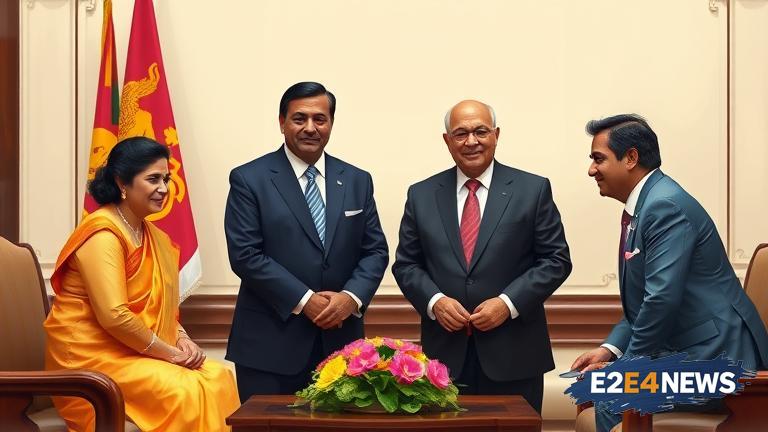Sri Lanka’s President recently met with a delegation from the International Monetary Fund (IMF) to discuss the country’s economic reforms and review progress ahead of the next Extended Fund Facility (EFF) review. The meeting is a crucial step towards securing the next tranche of funding from the IMF, which is essential for the country’s economic revival. Sri Lanka has been facing significant economic challenges, including a large trade deficit, high inflation, and a shortage of foreign exchange reserves. The IMF delegation, led by a senior official, held discussions with the President and other government officials to assess the country’s progress in implementing economic reforms. The reforms aim to stabilize the economy, reduce the budget deficit, and increase foreign exchange reserves. The President emphasized the government’s commitment to implementing the reforms and ensuring that the country meets the IMF’s conditions for the next EFF review. The IMF delegation also met with other stakeholders, including opposition leaders, to discuss the economic situation and the government’s plans to address the challenges. The meeting comes at a critical time for Sri Lanka, as the country is facing a severe economic crisis, with high inflation, a large trade deficit, and a shortage of foreign exchange reserves. The government has implemented several measures to address the crisis, including increasing taxes, reducing subsidies, and introducing austerity measures. However, the opposition has criticized the government’s handling of the economy, saying that the measures have not been effective in addressing the crisis. The IMF’s support is crucial for Sri Lanka, as it will provide the country with the necessary funding to implement its economic reforms and stabilize the economy. The next EFF review is expected to take place in the coming months, and the government is working to ensure that it meets the IMF’s conditions. The President’s meeting with the IMF delegation is a positive step towards securing the next tranche of funding and implementing the necessary economic reforms. The government is also working to increase foreign investment, promote tourism, and boost exports to help stabilize the economy. In addition, the government is implementing measures to reduce corruption, improve governance, and increase transparency. The IMF’s support will be critical in helping Sri Lanka to achieve its economic goals and stabilize the economy. The country’s economic crisis has had a significant impact on the population, with high inflation and a shortage of foreign exchange reserves affecting the availability of essential goods and services. The government is working to address the crisis and ensure that the economy is stabilized, and the meeting with the IMF delegation is a crucial step towards achieving this goal.





